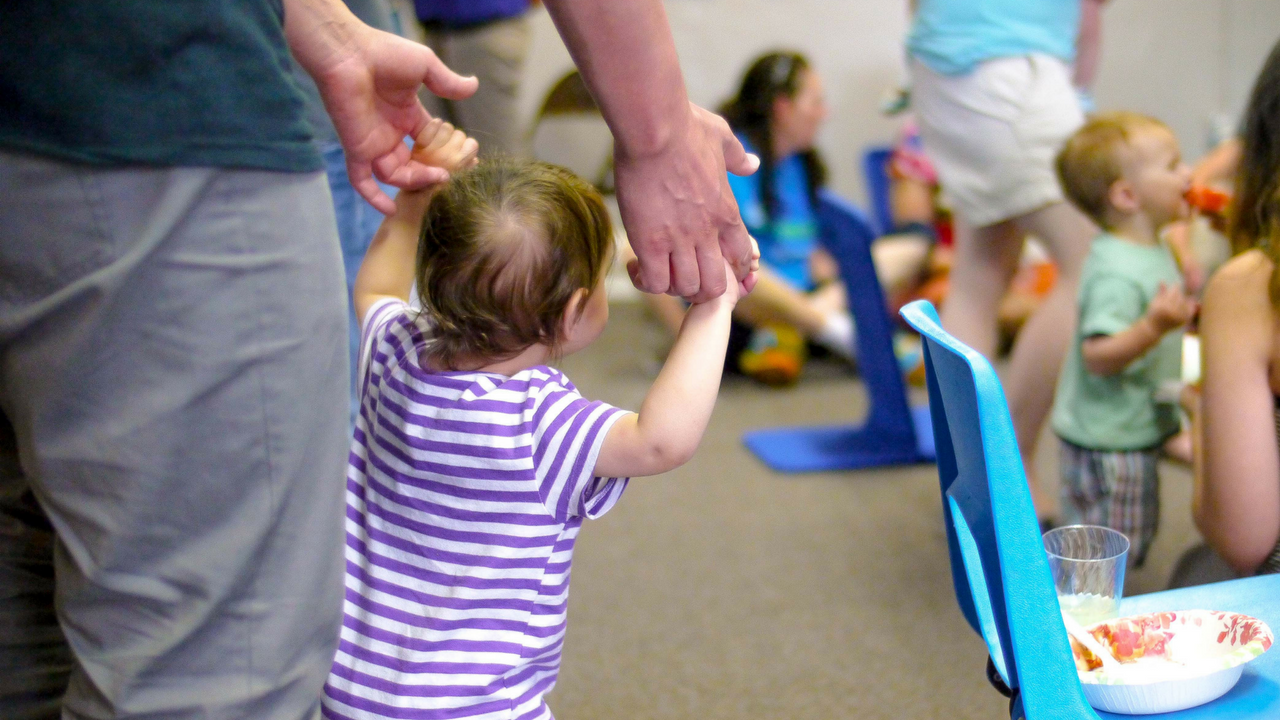Talking with Toddlers #1: Modeling Social Skills
Mar 13, 2018
The number one way you communicate with your children is through your own actions. Most of us know this, but we limit it's meaning. There is one area of modeling that often gets lost and that is the modeling of social skills. Most parents think a young child needs to be around other children to learn social skills. I often hear parents say they want to put their child into preschool, so they can learn how to interact with others. This seems logical. If a child is home with adults, how can they learn to interact with children? The problem is, other children don't know how to behave correctly either. It is like the blind leading the blind. The common result is children coming home with a myriad of wrong, and often aggressive, behaviors.
Social skills are actually learned from watching adults. As adults we model social behaviors in the way we interact with other adults, and how we treat our children. These interacts are the lessons our children internalize about how to talk to other and what to expect from others. If you want your children to hear your words, you need to make sure you are walking your talk.
Avoid the Double Standard
We have a tendency to have higher expectations of our children then we do of ourselves. We think children should share everything, never get upset, say only kind words, and play with everyone equally. As adults we have things we don't share. If fact, we often get very upset if other people mess with our things. I don't know about you, but I don't like to share my morning cup of coffee-- with anyone. Ask my husband. Then there are my lotions and potions. My children know the shelf in the shower that is off limits to them.
Our behaviors communicate quite clearly that some things are off limits. So it is easy to see why our young children don't share everything either. Despite the popular belief, the mine, mine, mine of toddlers, is not a universal. There are some cultures without any possession words. Since possession is not modeled, it isn't learned. There are things children need to share. We need to help them make choices about what to be share, and what they don't have to share. Our expectations for them need to match our own behaviors.
Life Long Skill Building
Social skills are just that, skills. Skills are first learned and then practiced. Learning the right way to be with other people is one of the hardest skills around. There are many books and classes out there for adults on how to improve social interactions. It takes a lifetime. As parents we need to remember to support our children in this area the same way we support children learning to read or do math, with kindest and encouragement.
For some children, social skills come naturally and easily to them. Others will need a little help. A few will have a great deal of difficultly learning social skills. We want to meet these children where they are and help with the level of support they need. A child who is having a hard time with social situations, needs more love and encouragement. Be kind to your children when they make social mistakes. Remember, in that moment, you are modeling how to treat people under stress.
Practice makes Perfect (or at least better)
As adults we have created scripts for many of the social situations we run into on a regular basis. When we find ourselves in that situation, we just pull out the script and follow it. Young children are in the process of creating these scripts. The more practice they have, the better they will be.
One way to practice is by playing with adults. When you get down and play with your child, you model the behaviors you want them to use with others. Which means you have to ask before you take a toy, or change what they are doing. You have to wait your turn, and sometimes be okay with it not going your way. Remember to also model standing up for your idea in a kind and gentle way.
Prepping for the New or Difficult
Reminding our children of social expectations is a simple and powerful way to help children as they head into social situations. When you are in the car, on your way to a play date, or the grocery store, or the park, you can go over the right behaviors. For example, if you are going to grocery store, you want to remind children about using walking feet, staying close by, and keeping our hands off the food. You can just tell them or you can do the reminders as a game. Older toddlers love this game. You ask if a behavior is right or wrong. "Do we yell at the store?"- No " Do we stay where you can see me?" - Yes. "Do we ask before we take things off the shelf?"- Yes.
Young children are wired to repeat the behaviors they observe. Children learn how to behave with others by watching you. Watching how you treat your spouse. Watching how you treat the neighbor. Watching how you treat them. And watching how you treat yourself. If you want your child to listen to you, you need to listen to them. If you make them feel bad, they learn to make others feel bad. If you uplift and support them, they will uplift and support others. Your most powerful way to communicate with your young child is through your actions.
Stay connected with news and updates!
Join our mailing list to receive the latest news and updates from our team.
Don't worry, your information will not be shared.
We hate SPAM. We will never sell your information, for any reason.


